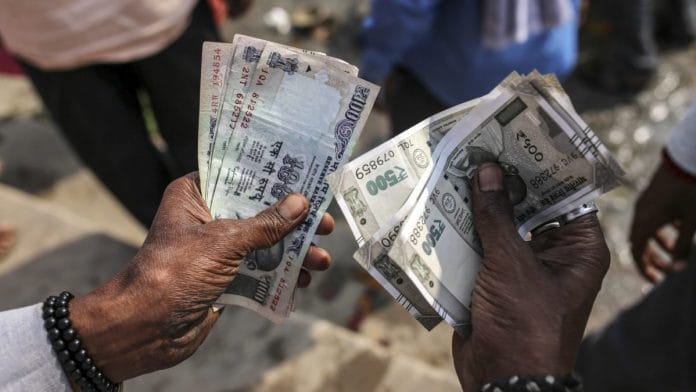New Delhi: Looking to boost financial inclusion in the digital age, government think-tank Niti Aayog has proposed a data-sharing framework that will allow small businesses and individuals to secure bank loans based on their online data without collateral.
Under the proposed system, Data Empowerment and Protection Architecture (DEPA), Indians who have no access to formal credit due to lack of collateral will be able to apply for loans using several types of digital documents that are currently not accepted by a bank as proof of credit worthiness.
These documents include GST data, invoices from government procurement platforms such as Government eMarketplace, e-commerce invoices, and transactions on platforms like Flipkart and Amazon, and “other kinds of digital sales records from trusted sources”.
According to Niti Aayog, MSMEs, small shop owners, farmers, traders and others could avail “small ticket working capital loan” using digital documents to show “a close-to-certain future cash flow”.
This architecture primarily aims to empower Indians who become “data rich” even before becoming economically wealthier to “seamlessly and securely access their data and share it with third party institutions”.
Government institutions, several players in the financial sector including the top leadership of several banks, and many nonprofits are helping to get DEPA off the ground.
Last week, NITI Aayog released a policy draft, seeking feedback until 1 October on the proposed online system.
The Data Empowerment & Protection Architecture will empower individuals with control over how their personal data is used & shared while ensuring that privacy considerations are addressed.
Seeking your comments on the draft document, before 1st Oct
?️ – https://t.co/Rdux9Xs8V7 pic.twitter.com/Urg5pK5wem
— NITI Aayog (@NITIAayog) September 3, 2020
The service is expected to be launched for India’s financial sector later this year. The same will later be adopted in the health and telecom sectors of India.
Also read: Govt needs to be scared out of complacency & Q1 contraction could do that, Raghuram Rajan says
How the architecture will work
The draft details how the system will work and aid financial inclusion.
For instance, an MSME seeking a small loan will approach a financial institution.
If this financial institution has agreed to be part of the proposed system, it can request documents about the potential customer from sources that have this data about the customer. Based on this data, the financial institution could approve a loan.
The entire process of data sharing will work around a new kind of entity that will be formed for this service, called consent managers. In the financial sector, consent managers are called account aggregators (AAs).
These AAs have formed a non-profit collective called Sahamati, which will work to further promote DEPA adoption in India.
The RBI had issued direction for the formation of AAs back in 2016. In the draft, Niti Aayog writes, “As of this writing, seven AAs have received in principle approval from RBI to begin operations, and two have received operational licenses.”
As the middleman, these AAs will do a number of things. They will receive data requests from a financial service entity that wants to vet or consider a potential customer. Then the AAs will send the data access requests to the customer and get their consent, after which they will send the data request to the entity that has the relevant data.
This entity will then send it to the one that requested the data through an end-to-end encrypted connection, so the middleman AAs can’t see or access the data.
Entities that are part of this service can also make money from it. For example, consent managers can charge a fee from the company that requests access to data about a potential customer.
The draft says the entity that is providing the data can also charge a fee, “but in the financial sector they have agreed to provide data without a charge for the time being”.
Infosys co-founder and former UIDAI chairman Nandan Nilekani had explained this online system and the concept of AAs at a 2019 event.
In July 2019, there was a limited rollout of this data sharing online service for the financial sector among a closed group that included major banks, according to the draft.
Disclosure: Nandan Nilekani, the former chairman of UIDAI and co-founder of Infosys, is among the distinguished founder-investors of ThePrint. Please click here for details on investors.
Also read: India is paying higher costs for its Covid crisis than we know yet






